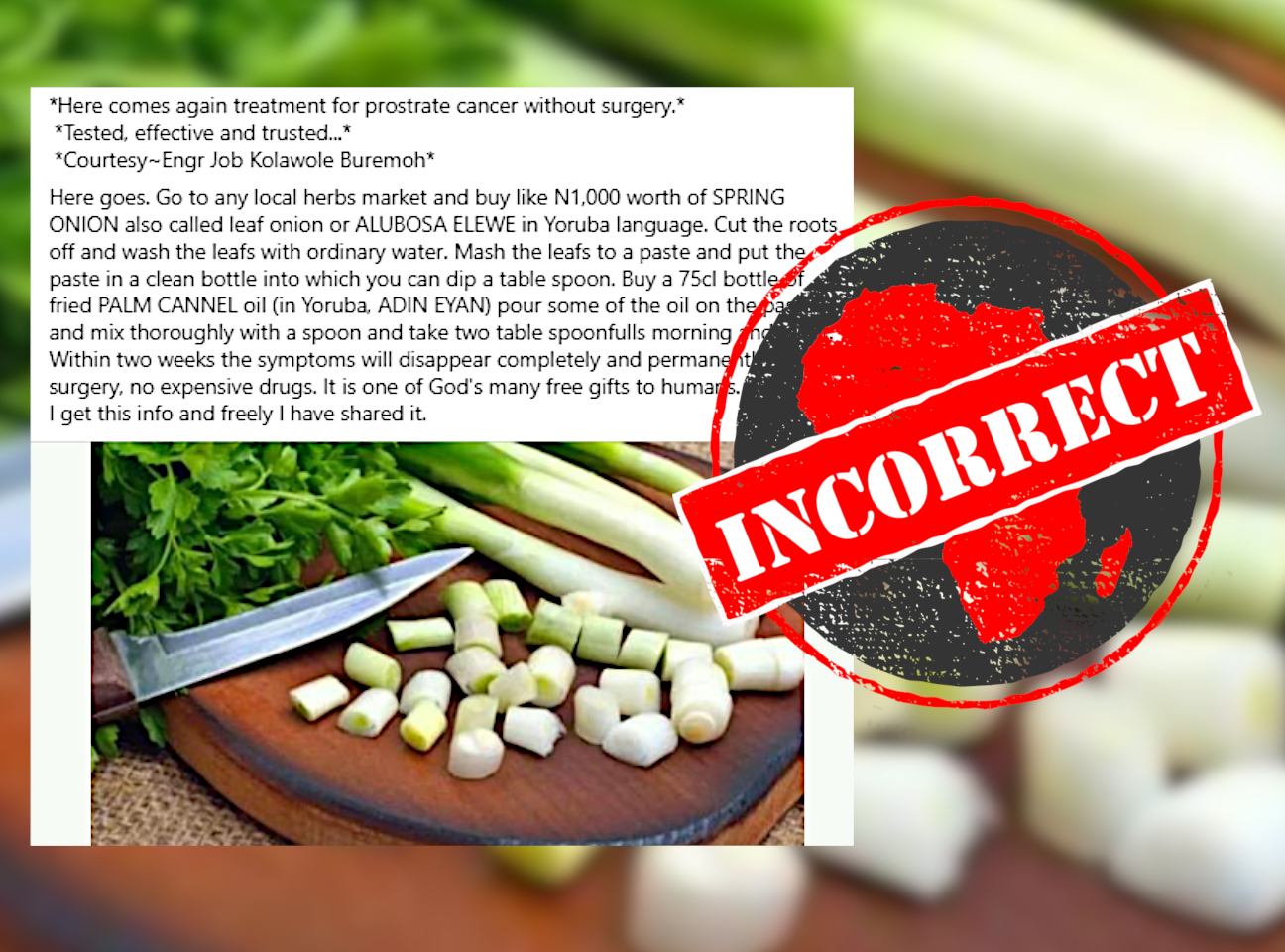A Facebook post shared in Nigeria in December 2020 claims that onion paste mixed with fried palm oil can cure prostate cancer entirely within two weeks, without surgery.
It reads: “Go to any local herbs market and buy like N1, 000 worth of spring onion also called leaf onion or ’alubosa elewe’ in Yoruba language. Cut the roots off and wash the leaves with ordinary water.”
The post goes on to describe the doses and direction of use, adding that “within two weeks the symptoms will disappear completely and permanently.”
Is spring onions paste and fried palm oil a permanent cure for prostate cancer?

Prostate cancer is the second most common type of cancer, affecting the prostate gland in men. It grows slowly within the gland but can sometimes be aggressive and spread fast.
We asked Paul Ekwere, a professor of urology at the University of Calabar’s faculty of medicine in southern Nigeria, if the claim was correct.
“I do not subscribe to such treatment because I have no knowledge of any scientific research that proves the mixture works … It is not a prescription for treating prostate cancer,” he said.
Ekwere said concoctions such as this do not cure cancer.
“The best advice for people suffering from the condition is to see a competent urologist, trained to manage such conditions.” – Catherine Olorunfemi
It reads: “Go to any local herbs market and buy like N1, 000 worth of spring onion also called leaf onion or ’alubosa elewe’ in Yoruba language. Cut the roots off and wash the leaves with ordinary water.”
The post goes on to describe the doses and direction of use, adding that “within two weeks the symptoms will disappear completely and permanently.”
Is spring onions paste and fried palm oil a permanent cure for prostate cancer?

See a doctor instead
Prostate cancer is the second most common type of cancer, affecting the prostate gland in men. It grows slowly within the gland but can sometimes be aggressive and spread fast.
We asked Paul Ekwere, a professor of urology at the University of Calabar’s faculty of medicine in southern Nigeria, if the claim was correct.
“I do not subscribe to such treatment because I have no knowledge of any scientific research that proves the mixture works … It is not a prescription for treating prostate cancer,” he said.
Ekwere said concoctions such as this do not cure cancer.
“The best advice for people suffering from the condition is to see a competent urologist, trained to manage such conditions.” – Catherine Olorunfemi
Republish our content for free
For publishers: what to do if your post is rated false
A fact-checker has rated your Facebook or Instagram post as “false”, “altered”, “partly false” or “missing context”. This could have serious consequences. What do you do?
Click on our guide for the steps you should follow.
Publishers guideAfrica Check teams up with Facebook
Africa Check is a partner in Meta's third-party fact-checking programme to help stop the spread of false information on social media.
The content we rate as “false” will be downgraded on Facebook and Instagram. This means fewer people will see it.
You can also help identify false information on Facebook. This guide explains how.





Add new comment